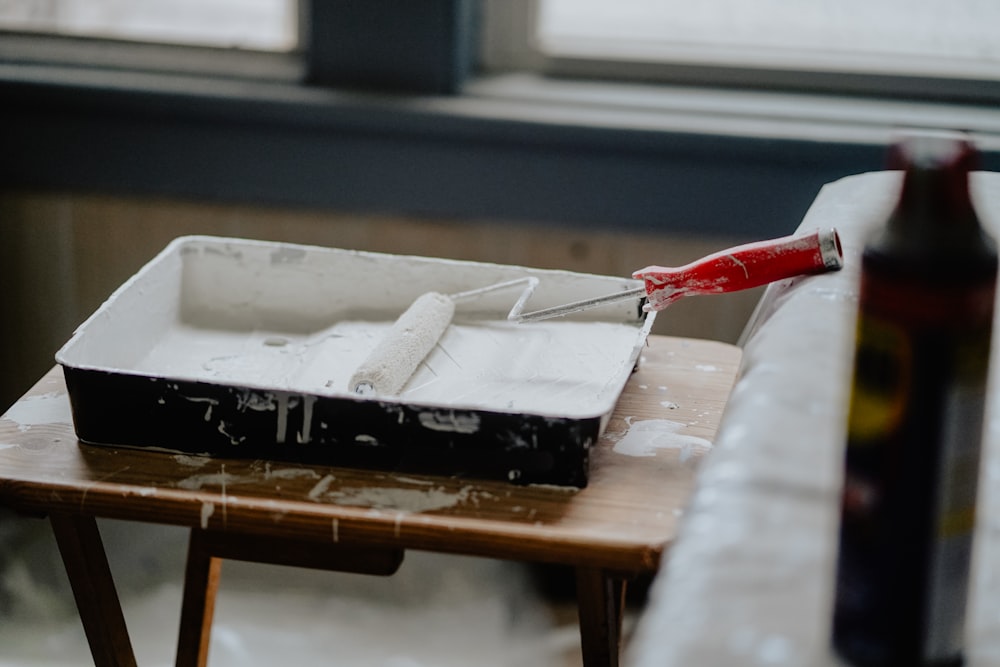Top Tips for Effective Home Electrical Maintenance
Essential Home Electrical Maintenance Tips
Understanding the Importance of Home Electrical Maintenance
Maintaining the electrical systems in your home is not just about convenience; it’s about safety. Neglecting electrical maintenance can lead to serious hazards like electrical fires or electrocution. By understanding the importance of home electrical maintenance, you can protect your property and loved ones from potential dangers.
Regular Inspections: A Proactive Approach
One of the most crucial aspects of home electrical maintenance is conducting regular inspections. Look for signs of wear and tear such as frayed wires, loose outlets, or flickering lights. Inspect your circuit breaker panel to ensure it’s properly labeled and functioning correctly. Identifying issues early on can prevent costly repairs or accidents in the future.
Safety Measures: Prioritize Your Well-Being
When it comes to working with electricity, safety should always be your top priority. Before attempting any electrical maintenance tasks, make sure to turn off the power to the area you’ll be working on. Use insulated tools and wear protective gear like gloves and goggles. If you’re unsure about a particular task, it’s best to hire a qualified electrician to handle it.
DIY vs. Professional Assistance: Knowing Your Limits
While there are many electrical maintenance tasks that homeowners can tackle on their own, some jobs are best left to the professionals. Complex wiring projects or repairs involving the main electrical panel should always be handled by a licensed electrician. Don’t hesitate to seek professional assistance if you’re unsure about the complexity of a task or if it involves working with high voltage.
Upgrading for Safety and Efficiency
As technology advances, so do electrical standards and safety features. Consider upgrading outdated electrical components in your home to improve safety and energy efficiency. Installing ground fault circuit interrupters (GFCIs) in bathrooms, kitchens, and outdoor areas can help prevent electrical shocks. Similarly, replacing old wiring or upgrading to energy-efficient lighting can reduce the risk of electrical hazards and lower your utility bills.
Creating a Maintenance Schedule
To ensure that your home’s electrical system remains in optimal condition, it’s essential to establish a regular maintenance schedule. Set reminders to inspect outlets, switches, and electrical appliances periodically. Schedule professional inspections every few years to assess the overall condition of your electrical system and address any potential issues before they escalate.
Educating Yourself: Knowledge is Power
Empower yourself with knowledge about home electrical maintenance. Familiarize yourself with the basic principles of electricity, safety protocols, and common electrical problems. Understanding how your home’s electrical system works can help you identify issues early on and make informed decisions about maintenance and repairs.
Investing in Preventive Measures
Prevention is key when it comes to home electrical maintenance. Invest in preventive measures such as surge protectors to safeguard your electronic devices from power surges. Consider installing smoke detectors and carbon monoxide alarms throughout your home to provide early warnings in case of emergencies. These proactive steps can help mitigate risks and ensure the safety of your household.
Staying Vigilant: Signs to Watch Out For
Be
Elevate Building Safety with Electrical Maintenance
Essential Electrical Building Maintenance Tips
Understanding the Importance of Electrical Maintenance
In the realm of building maintenance, electrical systems often take center stage due to their critical role in ensuring functionality and safety. Proper electrical maintenance is not just a matter of convenience; it’s a fundamental aspect of responsible building management. Neglecting electrical maintenance can lead to a host of issues, including safety hazards, equipment failure, and even potential legal liabilities. Therefore, understanding the importance of electrical maintenance is the first step towards ensuring the long-term health and performance of any building.
Implementing Regular Inspection Procedures
One of the cornerstones of effective electrical maintenance is regular inspection. By implementing routine inspection procedures, building owners and facility managers can identify potential issues before they escalate into costly problems. Inspections should encompass all aspects of the electrical system, including wiring, outlets, switches, and circuit breakers. Additionally, specialized equipment such as transformers and generators should be included in the inspection regimen to ensure comprehensive coverage.
Addressing Immediate Repairs Promptly
In the realm of electrical maintenance, procrastination is not an option. Any issues identified during inspections should be addressed promptly to prevent further complications. Whether it’s a faulty outlet, a flickering light, or a tripped circuit breaker, immediate repairs are essential to maintain the integrity and safety of the electrical system. Ignoring minor issues can lead to more significant problems down the line, potentially resulting in downtime, property damage, or even personal injury.
Prioritizing Preventive Maintenance Measures
While addressing immediate repairs is crucial, preventive maintenance measures are equally important for long-term electrical system health. Preventive maintenance encompasses a range of activities, including cleaning, lubrication, and tightening of connections. By proactively addressing potential failure points, preventive maintenance helps extend the lifespan of electrical components and reduces the likelihood of unexpected downtime. Moreover, preventive maintenance can contribute to energy efficiency and cost savings over time.
Investing in Professional Services
While some aspects of electrical maintenance can be handled internally, certain tasks require the expertise of trained professionals. Building owners and facility managers should consider partnering with reputable electrical contractors or maintenance firms to handle complex or specialized maintenance activities. Professional electricians bring both technical knowledge and experience to the table, ensuring that maintenance tasks are performed safely and effectively. Additionally, outsourcing maintenance allows internal staff to focus on their core responsibilities without compromising on electrical system integrity.
Staying Up-to-Date with Code Compliance
Building codes and regulations governing electrical systems are continually evolving to address emerging safety concerns and technological advancements. As such, staying up-to-date with code compliance is essential for building owners and facility managers. Regularly reviewing and adhering to applicable codes not only ensures the safety of building occupants but also mitigates the risk of fines or legal repercussions. Moreover, compliance with codes and standards demonstrates a commitment to safety and professionalism in building management.
Embracing Technological Innovations
The field of electrical maintenance is not immune to technological advancements, and building owners stand to benefit from embracing innovative solutions. From smart meters and energy management
DIY Home Projects Transform Your Space
Transform Your Space: DIY Home Projects
Embarking on do-it-yourself (DIY) home projects can be an exciting and fulfilling endeavor, offering homeowners the opportunity to personalize and enhance their living spaces while saving money in the process. From simple upgrades to ambitious renovations, DIY home projects empower individuals to unleash their creativity and transform their homes into spaces that reflect their unique tastes and lifestyles.
Unleash Your Creativity: Personalize Your Space
DIY home projects provide the perfect canvas for expressing your creativity and personality. Whether you’re painting a feature wall, upcycling furniture, or crafting custom decor pieces, DIY projects allow you to infuse your space with your own personal style and flair. By adding unique touches and custom details, you can create a home that truly reflects who you are and what you love.
Budget-Friendly Solutions: Save Money While Renovating
One of the biggest advantages of DIY home projects is their cost-effectiveness. By taking on tasks yourself and sourcing materials strategically, you can significantly reduce the cost of home renovations and upgrades. DIY projects allow you to prioritize where to allocate your budget, focusing on areas that will have the greatest impact on your home’s aesthetics and functionality without breaking the bank.
Learn New Skills: Expand Your DIY Toolkit
DIY home projects provide the perfect opportunity to learn new skills and techniques. Whether you’re mastering the art of tiling, honing your carpentry skills, or tackling electrical work, each project offers a chance to expand your DIY toolkit and gain valuable experience. With practice and perseverance, you’ll become more confident in your abilities and equipped to tackle even more ambitious projects in the future.
Empowerment Through Ownership: Take Pride in Your Accomplishments
There’s a sense of pride and satisfaction that comes from completing a DIY home project with your own two hands. From the initial planning stages to the final finishing touches, each step of the process is a testament to your creativity, resourcefulness, and hard work. By taking ownership of your home improvements, you’ll feel a deeper connection to your space and a greater sense of accomplishment.
Customize Your Living Environment: Tailor-Made Solutions
One of the greatest advantages of DIY home projects is the ability to customize your living environment to suit your specific needs and preferences. Whether you’re adapting your space to accommodate a growing family, creating a dedicated workspace, or optimizing storage solutions, DIY projects allow you to tailor-make your home to fit your lifestyle. By addressing your unique challenges and priorities, you can create a more functional and comfortable living environment for you and your loved ones.
Bonding Through Collaboration: Make Memories Together
DIY home projects also provide a wonderful opportunity for bonding and collaboration with family members, friends, and loved ones. Working together on a shared goal fosters communication, teamwork, and a sense of camaraderie as you tackle challenges and celebrate successes together. Whether you’re building a deck, landscaping the backyard, or remodeling a room, the memories you create along the way will last a lifetime.
Safety



